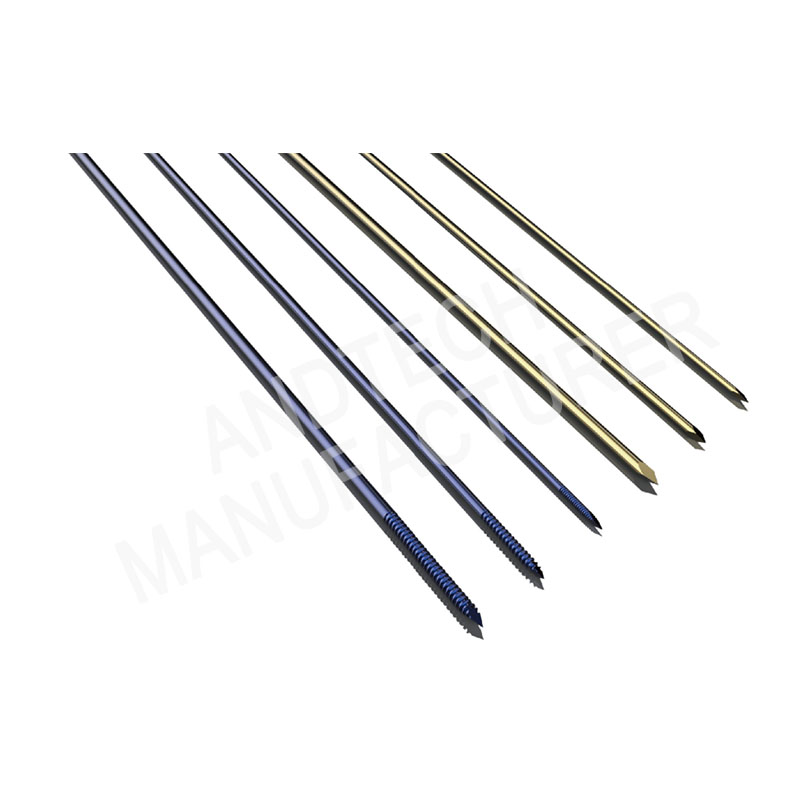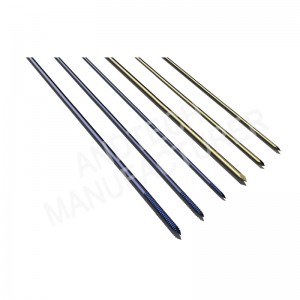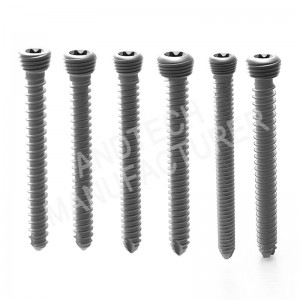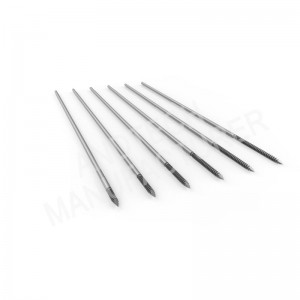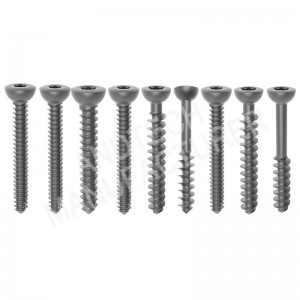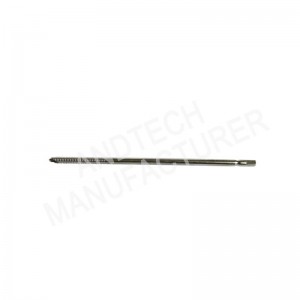Titanium Alloy and Stainless Steel Kirschner Wire
Titanium alloy & Stainless steel
Characteristics
Class certificate
Implantable and much precise
Titanium alloy material
Excellent biocompatibility
Sterile package
Convenient to use
Diamond tip design
Low resistance and heat production during the implantation
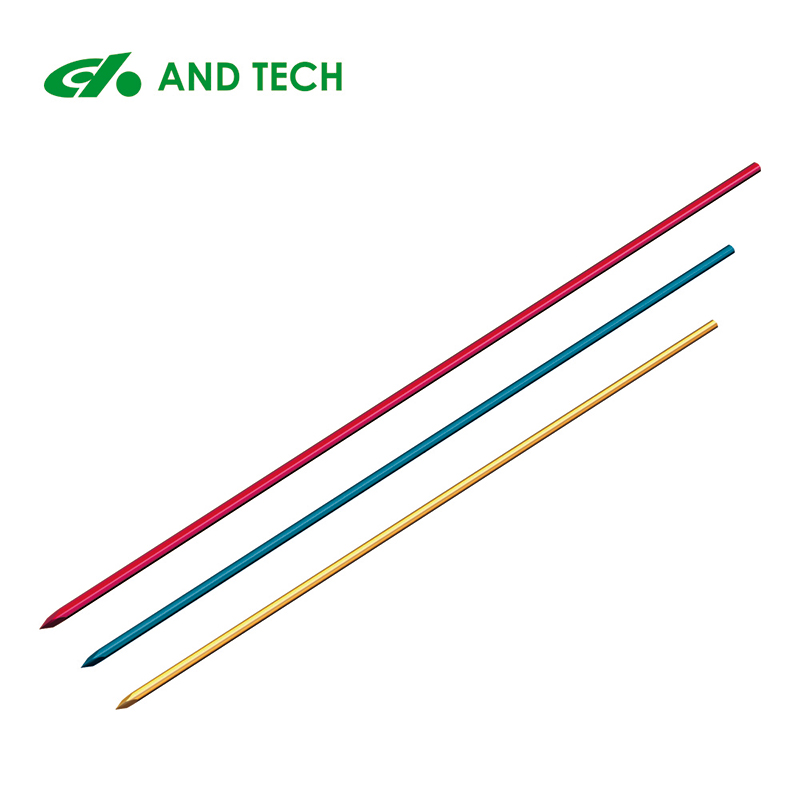
Medical Tips
Indications
K-wires are used for temporary fixation during some operations. After definitive fixation they are then removed. The pins are usually removed four weeks post operation.
They can be used for definitive fixation if the fracture fragments are small (e.g. wrist fractures and hand injuries). In some settings they can be used for intramedullary fixation of bones such as the ulna.
Tension band wiring is a technique in which the bone fragments are transfixed by K-wires which are then also used as an anchor for a loop of flexible wire. As the loop is tightened the bone fragments are compressed together. Fractures of the kneecap and the olecranon process of the elbow are commonly treated by this method.
K-wires come in different sizes, and as they increase in size, they become less flexible. K-wires are often used to stabilize a broken bone and can be removed in the office once the fracture has healed. Some K-wires are threaded, which helps prevent movement or backing out of the wire, although that can also make them more difficult to remove.






